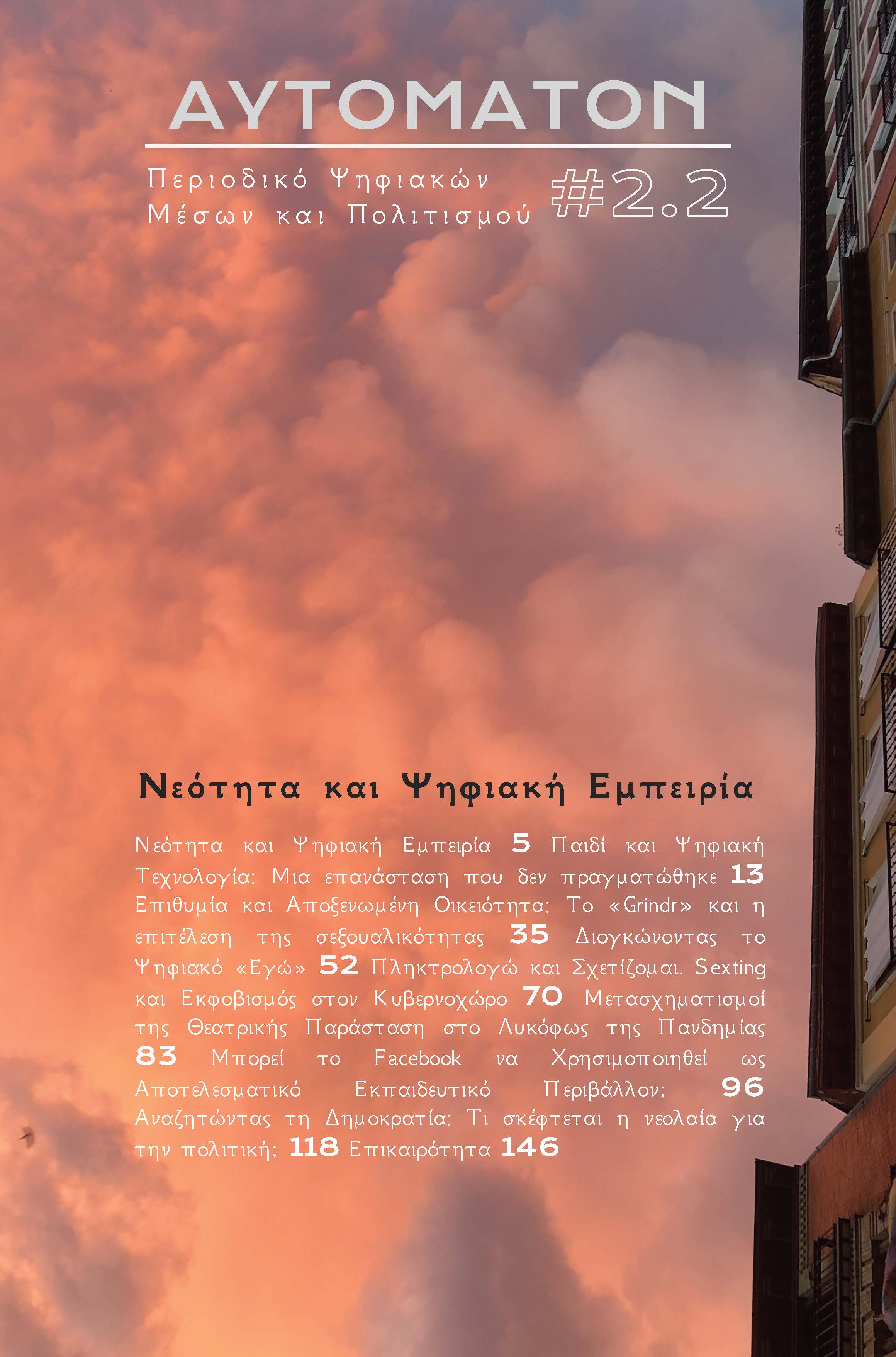Can Facebook be used as an effective educational environment?

Abstract
After the rapid growth and use of digital social media and the involvement of young people with them, the question arose whether social media, and particularly Facebook, can be an effective educational tool for students, apart from being a means of communication and entertainment. The research was carried out for one school year in two secondary schools, with the participation of 100 students and four teachers, who used Facebook as an educational environment in which they organized and implemented their teaching. The data collected were approached qualitatively and the conclusion that emerged is that the Facebook platform can, under certain conditions, function as an effective educational environment, with the appropriate design and the necessary didactic contextualization. That leads to the creation of a dynamic learning community, where the cognitive engagement of students is increased, the emotional aspect of teaching and learning is enhanced and new types of competences are formed for both students and teachers.
Article Details
- How to Cite
-
Karakiza, T. (2023). Can Facebook be used as an effective educational environment?. Αutomaton: Journal of Digital Media and Culture, 2(2), 96–117. https://doi.org/10.12681/automaton.35478
- Section
- Articles

This work is licensed under a Creative Commons Attribution 4.0 International License.
Authors wishing to publish articles in this journal agree to the following terms:
1. The Authors retain the Copyright and grant the journal the right of first publication while at the same time the copyright of the work is protected under the Creative Commons Attribution License which allows third party licensees to use the work as they wish provided they acknowledge the work's authorship and initial publication in this journal.
2. Authors may enter into separate additional contractual arrangements for the non-exclusive distribution of the published journal version of the work (for example, posting it to an institutional repository or publishing it in a book), with acknowledgment of its initial publication in this journal.
3. Authors are allowed and encouraged to post their work online before and during the submission process (e.g. on their website) as this can lead to productive exchanges as well as earlier and more citations of published work (See The Effect of Open Access).


